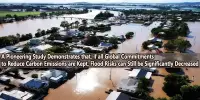Information ecology is the use of ecological concepts to model an information society. It is the study of how information flows and changes within a given environment or system. It examines the dynamics and features of the increasingly dense, complicated, and significant digital information world. It refers to the interplay between living organisms, technology, and the information they create, consume, and trade.
The term “information ecology” is frequently used as a metaphor for understanding the information space as an ecosystem, specifically the information ecosystem. The notion uses ecological concepts to explain how information is created, transmitted, and altered in a specific context.
Key elements of information ecology include:
- Information Sources: Identifying the various sources of information within a system, which can include human-generated data, digital content, traditional media, and more.
- Information Flow: Examining how information moves within a particular environment, including the channels and pathways through which it spreads. This can involve studying communication networks, information dissemination mechanisms, and feedback loops.
- Information Consumption: Analyzing how individuals or entities within the system consume and interpret information. This involves understanding the factors that influence information processing, decision-making, and knowledge acquisition.
- Information Technologies: Considering the role of technology in shaping information ecosystems. This includes the impact of digital tools, communication platforms, and information systems on the creation and dissemination of information.
- Feedback Mechanisms: Investigate how information feedback loops work within a system. Understanding how information is received affects subsequent behaviors, decisions, and the development of new information.
The term information ecology is commonly used in subjects such as information science, communication studies, and media ecology. It offers a comprehensive framework for comprehending the intricate interplay of information, technology, and the social and cultural characteristics of a particular setting.
















